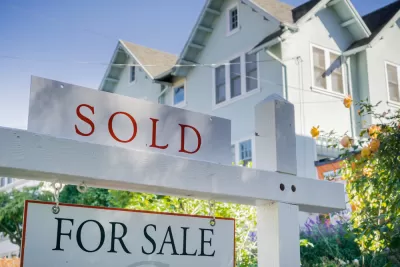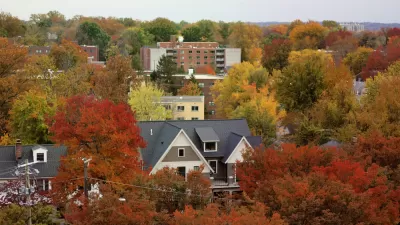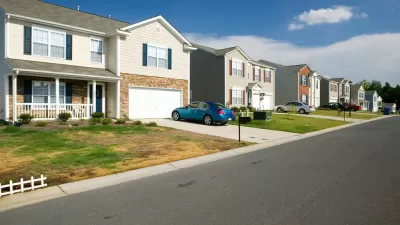The monthly costs—mortgage payments, property taxes, and insurance—of a typical low-end home in the Boston region has reached $3,600 a month. A typical home costs $5,000 a month.

A recent study of the Greater Boston housing market data from the past year reveals the consequences of rising housing costs in the region, namely stress for renters and fewer potential homebuyers able to cover the cost of mortgage payments.
The “combination of record-high house prices and sharp increases in mortgage interest rates has greatly reduced the number of renter households that can afford the typical home in the region―or even the typical low-end home,” writes Daniel McCue to summarize the findings of the “Greater Boston Housing Report Card 2022,” published by the Boston Foundation.
The findings also note the rising cost of homes in the region is of particular significance in Black and Hispanic households, “which threatens to extend significant existing racial and ethnic inequities in the region’s housing market.”
According to the study, asking rent increased by 11 percent in the region over the past 12 months. Things aren’t much better on the homeowner market: “At last measure in September 2022, the value of a typical home in the Boston metro area had risen to $652,000, which is $57,000 higher than a year ago,” writes McCue. The rising mortgage interest rates is making it tougher to cover the cost of mortgage payments, even for people who could afford to buy a home. “Between September of 2021 and September of 2022, interest rates on a 30-year mortgage more than doubled, rising from 2.9 percent to 6.11 percent. This, in combination with the rise in home prices, lifted monthly mortgage payments on the typical home up $1,400 per month over the past year to $3,800 by September 2022,” according to the article.

Alabama: Trump Terminates Settlements for Black Communities Harmed By Raw Sewage
Trump deemed the landmark civil rights agreement “illegal DEI and environmental justice policy.”

Study: Maui’s Plan to Convert Vacation Rentals to Long-Term Housing Could Cause Nearly $1 Billion Economic Loss
The plan would reduce visitor accommodation by 25% resulting in 1,900 jobs lost.

Planetizen Federal Action Tracker
A weekly monitor of how Trump’s orders and actions are impacting planners and planning in America.

Wind Energy on the Rise Despite Federal Policy Reversal
The Trump administration is revoking federal support for renewable energy, but demand for new projects continues unabated.

Passengers Flock to Caltrain After Electrification
The new electric trains are running faster and more reliably, leading to strong ridership growth on the Bay Area rail system.

Texas Churches Rally Behind ‘Yes in God’s Back Yard’ Legislation
Religious leaders want the state to reduce zoning regulations to streamline leasing church-owned land to housing developers.
Urban Design for Planners 1: Software Tools
This six-course series explores essential urban design concepts using open source software and equips planners with the tools they need to participate fully in the urban design process.
Planning for Universal Design
Learn the tools for implementing Universal Design in planning regulations.
Caltrans
Smith Gee Studio
Institute for Housing and Urban Development Studies (IHS)
City of Grandview
Harvard GSD Executive Education
Toledo-Lucas County Plan Commissions
Salt Lake City
NYU Wagner Graduate School of Public Service





























